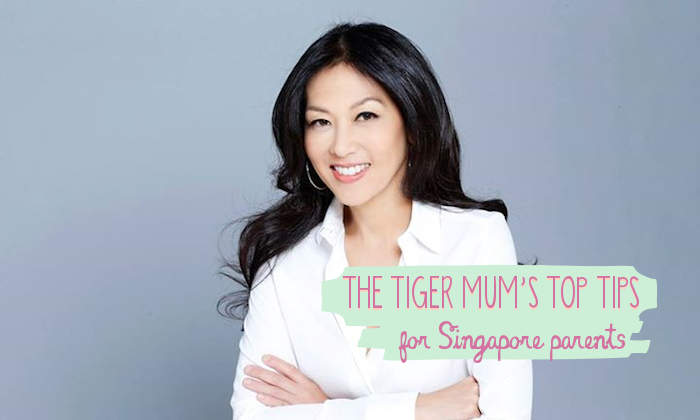
 Post Category - ParentingParenting
Post Category - ParentingParentingLast week we met and interviewed the infamous “Tiger Mom”, Amy Chua during her first visit to Singapore. Read on for her enlightening tips and thoughts on raising smart, capable children.
Her controversial 2011 book Battle Hymn of the Tiger Mother made her an infamous global celebrity and called parenting practices around the world into question. Are Western parents too easy on their kids? Are Asian parents too hard? Although Amy Chua never positioned her book as a parenting manual (but rather as a humorous memoir), the unquestioned success of her two daughters – both subsequently admitted to Harvard – along with her own charisma has made her the face of Asian parenting values.
Professor Chua (writing best-selling books is just a hobby alongside her day job as a professor at prestigious Yale Law School) recently visited Singapore for the first time to help launch The Keys Academy, a tutoring, enrichment and admissions consulting centre for secondary and junior college students. Although she’s adamant that she doesn’t have a specialist background in education and isn’t contributing to the curriculum (nor does she have a stake in the business), she joined the Keys advisory board and has given her stamp of approval because, she says, they uniquely “combine the best of Eastern and Western values; they’re trying to make education fun, and they’re making it creative”.
We had a chance to speak with Professor Chua before she gave the keynote address at The Keys’ grand opening, and found her friendly, forthcoming and actually quite bubbly! Read on for her thoughts on technology and screentime for young children, how she personally balances work and family commitments as a busy mama, and her surprising #1 piece of advice for raising successful kids (hint: it involves garbage)…
You mention that the Keys combines the “best” of both Eastern and Western approaches to education. What are those traits? And what are their worst aspects?
I think on both sides this relates to creativity. The West romanticizes creativity (“Look at Mark Zuckerberg and Steve Jobs! They both dropped out of college!”), while it’s clear that Eastern values like hard work and discipline are just as crucial to success. I know Mark Zuckerberg, believe me he worked hard to get where he was!
At the same time, the East could learn from the Western emphasis on individualism. You can’t be creative and truly learn if you’re suffocated, doing nothing but studying and memorizing within a narrow definition of success. If you’re just drilling and studying all the time, when are you supposed to come up with new ideas?
The East needs to expand its definition of educational success beyond just grades, test scores and certain instruments. I think it’s weird that all Asian kids only play piano and violin!
But the bottom line is that happiness and achievement are not mutually exclusive. You only love something when you’re good at it, and I think the Asian values of grit, discipline and resilience are the building blocks to achieving that greatness and developing a passion. I’m a huge fan of drilling!
What are your thoughts on screen time (including computers, tablets, and phones)? Do you think these items have a place in early education and learning?
I’ve fought with my children on this more than anything, but I have to admit I’m a tech convert when it comes to kids older than 12. It’s honestly impossible to ban phones, tablets or computers, and I’ve realized that my daughters know more about current events than I ever did. They also don’t even watch television, they just stream everything. Hulu…Vulu…I can’t keep up!
When they were younger they weren’t allowed to watch television other than occasional movies or sports games; from about the ages of 5-12 it was all about focusing on instruments and academics.
With regard to younger kids, and the question of educational apps, my own view is that there is a danger that the technology can become this isolating thing, especially here in Asia which already has far less socializing in schools than in the U.S. I think technology like robotics (which they teach at The Keys Academy) brings out teamwork and is collaborative, but with individual phones or tablets I would be on the stricter side. I’d rather force them to be reading books!
You’ve talked about generational decline and how your daughters have grown up in a much more privileged environment than you did as the daughter of immigrants. While there are obviously a great many benefits to growing up with privilege, what are the challenges? How do you combat these issues? In a place like Singapore where many children are raised with domestic helpers and kiasu parents want to give them every competitive advantage, this is a major concern of ours!
Raising privileged kids is a big problem. If they’re spoiled, or grow up being made to think they are the centre of the universe, they will become these selfish narcissists who don’t do any good for anyone. When you over-stress grades or university admission as the be-all end-all to your kids, you run the danger of making them think they’re more important than anything else in the world. Children need humility, responsibility and gratitude to become good citizens and leaders.
My friend Wendi Deng [the extremely wealthy ex-wife of Rupert Murdoch] loves my daughters and asked for my #1 piece of advice to help her daughters grow up to be like them. I told her: Make your kids take out the garbage. She laughed, but I’m serious! It teaches them humility and morality, which kids need to avoid developing a sense of entitlement.
How do you balance work and family commitments given your multiple busy careers? In particular, how did you manage to so strictly stay on top of your daughters when they were still living at home?
Honestly, for most of their childhood – probably again from the ages of about 5-12 – I always felt like I wasn’t doing either job well. I felt like I had to be so much more organised than my husband. People imagine professors just schmoozing at lunch talking about ideas, but that certainly wasn’t me! At 3pm I would put up a sign on my office door that said “PROFESSOR CHUA IS IN A MEETING”, when actually I had to leave to go pick my daughters up from school. I mean I guess I was in a meeting…with my 10-year-old.
For me it kind of came down to staggering or alternating priorities. At times I was more focused on the kids, then for a period I’d be more deeply involved in my career. Until institutions [around flexible working hours, paid leave, and the division of labour in the home] change, I’m afraid I don’t foresee an easy solution.
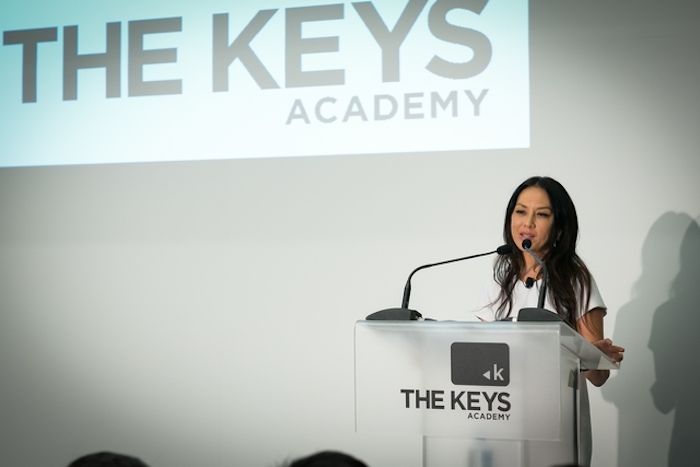
A few other key tidbits from Professor Chua’s talk:
- “From the age of 6 or 7, help children develop their own opinions and views. Treat them like adults! Around the dinner table discuss politics, the environment, space travel…ask questions! For us Asians I know this is hard because there’s homework to be done and instruments to be practiced, but it goes a long way to deepening their thinking.”
- “Expose your children to art. It helps bring out soft skills. Ask them ‘What do you think about this?’ or ‘How does it make you feel?’. It teaches them that there’s not always one right answer.”
- “Give your children the freedom and flexibility to take risks. Starting as young as 7, let them make their own mistakes, and give them space to be spontaneous. Failure is a necessary ingredient of strength and success.”
- “Encourage humour and laughter in your home, in your children, and in school. Humour requires critical thinking; you need to be self aware and able to questions things. Plus, laughter is psychologically healthy. It’s a release valve. A way of lowering the stakes and keeping things in perspective.”
- “I’m big on unconditional love. No matter how strict you are, don’t ever say ‘If you don’t do this I won’t love you’. The message needs to be: ‘You are capable of so much more than you think you are’.”
A big thank you to Professor Chua for taking the time to speak with us, and to The Keys Academy for inviting us along!






 View All
View All

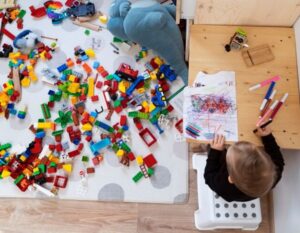

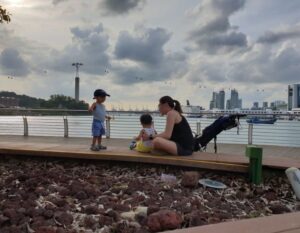
 View All
View All



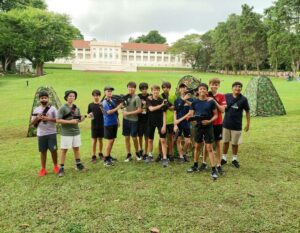






 View All
View All


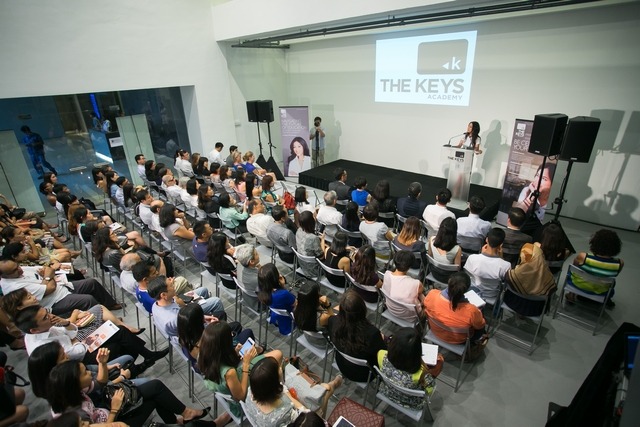
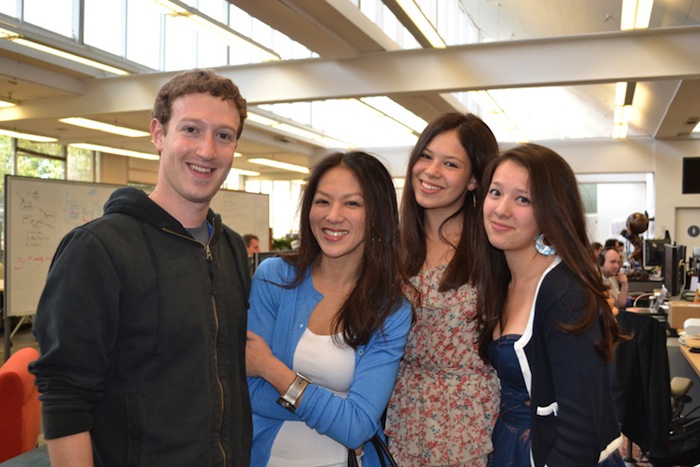

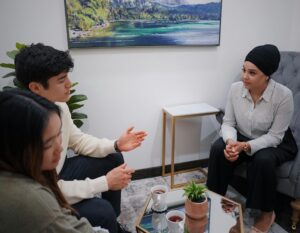


![[𝗡𝗘𝗪] 𝗣𝗮𝘀𝗶𝗿 𝗥𝗶𝘀’ 𝗕𝗿𝗼𝗻𝘁𝗼𝘀𝗮𝘂𝗿 𝗣𝗮𝗿𝗸 𝗶𝘀 𝗕𝗔𝗖𝗞. 𝗦𝗮𝗳𝗲𝗿 & 𝗙𝗨𝗟𝗟 𝗼𝗳 𝗗𝗶𝗻𝗼-𝗦𝗶𝘇𝗲𝗱 𝗙𝘂𝗻! 🦕🦖
A dinosaur you can climb into, a tail slide you can zoom down, and plenty of spots for kids to swing, bounce, and explore? Yeap, it’s a full-on dino adventure. After being closed for a major revamp, Brontosaur Park is now officially open (and safe!) for little adventurers to run wild.
Comment “DINO” or hit the link in bio for more epic outdoor playgrounds in Singapore!
𝗪𝗵𝗮𝘁 𝘄𝗲 𝗹𝗼𝘃𝗲:
- A Brontosaurus structure kids can explore from the legs to the belly
- A roller slide that goes right down the dino’s tail
- Rope bridges, climbing nets & hammocks between stego spikes = plenty of ways to burn off energy
- Toddler-friendly mini dino zone for the little ones
- Spot dino sculptures painted by residents (hidden all around the park)
𝗧𝗶𝗽𝘀 𝗳𝗼𝗿 𝗺𝗮𝘅 𝗳𝘂𝗻:
- Wear grippy shoes. Lots of climbing involved
- Pack snacks and water (There are minimarts nearby)
𝗪𝗵𝗲𝗿𝗲? The playground is located between Blk 777 & 778, along Pasir Ris St 71
𝗖𝗼𝘀𝘁? FREE!
.
.
.
.
.
#DinoPlaygroundSG #PasirRisPlayground #SgPlaygrounds #OutdoorFunSG #FreePlaygroundsSG #BrontosaurPark #SgFamilyAdventures #ThingsToDoWithKidsSG #SingaporeWithKids #PlaygroundGoalsSG #ToddlerPlaySG](https://www.sassymamasg.com/wp-content/plugins/instagram-feed/img/placeholder.png)
